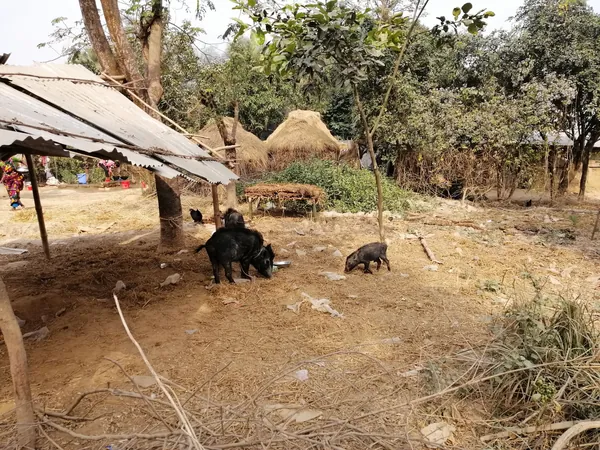
Breakthrough in Vaccines Offers Hope Against Deadly Nipah Virus Threatening Pigs and Humans
2025-07-23
Author: Siti
A Game-Changer in Virus Protection
Researchers at The Pirbright Institute have made significant strides in combating the Nipah virus, one of the most perilous zoonotic viruses known to science, primarily threatening pigs and humans alike.
The Nipah Virus: A Silent Menace
Originating from old-world fruit bats, the Nipah virus can leap from animals to humans, causing catastrophic outbreaks. First identified during a dramatic outbreak in Malaysia in 1998-1999, the virus decimated nearly half of the nation’s pig population and inflicted severe economic repercussions.
A Growing Threat in Asia
In recent years, the Nipah virus has re-emerged in South and Southeast Asia, especially in Bangladesh and India. Here, it has led to human-to-human transmission and severe health crises linked to consuming contaminated foods like date palm sap, bringing alarmingly high fatality rates.
The Grim Reality of Nipah Infection
Infected individuals can face serious consequences, including encephalitis and respiratory issues. The disease begins with subtle flu-like symptoms but can quickly spiral into coma or death. Alarmingly, there are no licensed vaccines or treatments available for either pigs or humans, making the Nipah virus a pressing health concern.
Urgent Research and Development Needed
Recognized as a priority disease by the WHO and a critical pathogen by the UK Health Security Agency, the Nipah virus prompts urgent calls for research and innovative vaccine solutions.
Exciting New Vaccine Candidates Under Trial
A dedicated international team, led by scientists at The Pirbright Institute alongside researchers from Australia and Bangladesh, is targeting the virus by developing experimental vaccines for pigs to cut off its primary transmission route.
Promising Results from Experimental Trials
Published in the journal npj Vaccines, the study explores three innovative vaccine candidates, including one that utilizes a viral vector platform akin to the Oxford/AstraZeneca COVID-19 vaccine. Initial trials have demonstrated the vaccines' ability to provoke robust immune responses in mice and pigs, indicating significant potential to guard against Nipah.
Field Trials Show Success
In further assessments involving "backyard" pigs in the endemic "Nipah belt" of Bangladesh, all three vaccine candidates successfully shielded pigs from infection, with varying levels of immune response strength noted.
A Multidimensional Approach to Health Security
Professor Simon Graham from The Pirbright Institute emphasized the importance of preventing Nipah outbreaks among pigs to protect human health and food security. The team’s ongoing collaboration with partners in Germany aims to create a dual vaccine that shields pigs not only from Nipah but also from common swine diseases.
Combating Emerging Health Threats Together
This significant research highlights the critical need for a One Health approach that unites animal, human, and ecosystem health, addressing these interconnected challenges head-on to stave off future pandemics.

 Brasil (PT)
Brasil (PT)
 Canada (EN)
Canada (EN)
 Chile (ES)
Chile (ES)
 Česko (CS)
Česko (CS)
 대한민국 (KO)
대한민국 (KO)
 España (ES)
España (ES)
 France (FR)
France (FR)
 Hong Kong (EN)
Hong Kong (EN)
 Italia (IT)
Italia (IT)
 日本 (JA)
日本 (JA)
 Magyarország (HU)
Magyarország (HU)
 Norge (NO)
Norge (NO)
 Polska (PL)
Polska (PL)
 Schweiz (DE)
Schweiz (DE)
 Singapore (EN)
Singapore (EN)
 Sverige (SV)
Sverige (SV)
 Suomi (FI)
Suomi (FI)
 Türkiye (TR)
Türkiye (TR)
 الإمارات العربية المتحدة (AR)
الإمارات العربية المتحدة (AR)